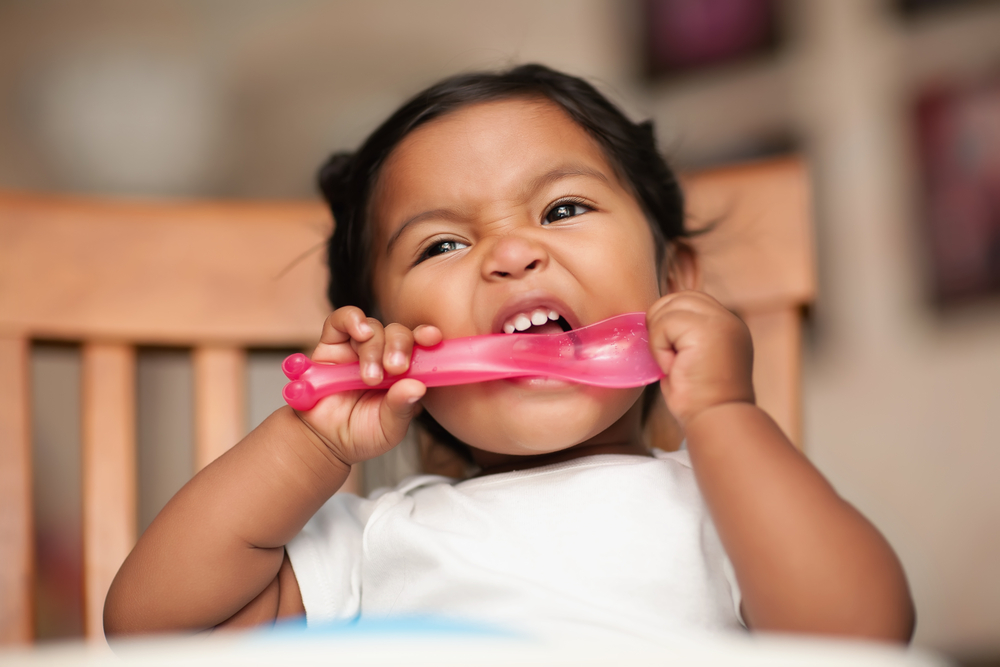
Parenting a toddler is a journey filled with surprises, milestones, and challenges. One common hurdle many parents face is toddler biting. While this behavior can be concerning, it is a natural developmental phase for many children.
Understanding why it happens, how to handle toddler biting effectively, and what role childcare environments like Kinderplatz in Bloomington, MN play can make all the difference. In the bustling Twin Cities area, parents often juggle busy schedules while seeking toddler behavior guidance, making practical strategies even more crucial.
Understanding Why Toddlers Bite
At ages one to three, children are still learning how to express themselves, and biting can become an outlet for emotions they cannot yet verbalize. For many toddlers, it’s a way to communicate frustration, seek attention, or simply explore their environment.
Toddler biting is rarely about aggression. Instead, it often stems from developmental, emotional, or physiological factors:
- Communication struggles – Toddlers bite when they can’t express frustration or needs with words.
- Teething discomfort – Biting soothes sore gums.
- Curiosity or exploration – Some children bite simply to explore their environment or test cause and effect.
- Overstimulation or frustration – Shared toys and group play can be overwhelming, especially for children who are still learning the concept of taking turns.
- Adrenaline rush – Sometimes the physiological effects of the adrenaline rush children receive from the other child’s (or an adult’s) big reaction is unintentional encouragement for a child to continue or repeat the behavior.
In Bloomington childcare settings and at home, these triggers may appear differently or in just one environment or the other. Recognizing what causes the behavior allows parents and teachers to address it calmly and consistently rather than reacting with frustration.
Toddler Biting Solutions: Strategies That Work
Toddlers learn through repetition, so consistency and patience are key when addressing toddler biting. Here are some strategies to use in combination to be most effective:
- Respond quickly but calmly – Use short, clear statements like “No biting” without raising your voice or giving extra attention to the unwanted behavior. Brief and discreet correction is best.
- Redirect – Offer words or alternatives (e.g., “stop,” and “my turn”—instead of “mine” in group settings due to all toys and equipment being shared) can be effective with practice and consistency. Sensory toys or teething tools can help, too.
- Teach empathy – Encourage toddlers to comfort the child they bit, helping them build emotional awareness.
- Make it fun – Practice turn-taking with games like “My Turn, Your Turn” to reduce frustration in shared play.
In the Twin Cities, where many families juggle work and busy schedules, these practical toddler biting solutions work best when parents and childcare providers partner together to apply them consistently across home and daycare environments.
The Role of Childcare and Daycare Providers
Childcare centers play a central role in managing toddler biting due to the significant amount of time children spend in these group environments. Trained caregivers:
- Observe and document triggers and patterns.
- Manage group dynamics and apply consistent interventions.
- Communicate openly with parents.
At Kinderplatz in Bloomington, MN, teachers use proactive strategies such as structured routines, modeling positive peer interactions, and discreetly guiding children through challenges. By partnering with families, our childcare team ensures consistency between home and daycare, making behavior management more effective.
Handling Toddler Biting in Social Settings
Beyond daycare, biting may also happen at parks, playdates, or family gatherings. Parents can prepare by:
- Gently and briefly reminding toddlers about the expectations by using simple, reassuring language before events. Demonstrate what using “gentle hands and gentle mouths” mean by intentionally practicing these concepts with each other prior to social interactions.
- Bringing engaging toys, comfort items, and chewable toys to reduce overstimulation, frustration, and teething discomfort.
- Apologizing to other parents when necessary and refocusing the child’s energy toward constructive activities—what the child CAN do instead, rather than focusing solely on what the child CAN’T or shouldn’t do.
- Staying calm and addressing biting discreetly if it occurs. Remember that what adults give public attention to with young children will grow and multiply, so correction and behavior guidance are most effective when done intentionally—responding rather than reacting.
Consistent responses across environments help toddlers learn to minimize biting while also fostering emotional growth.
Long-Term Behavior Guidance and Emotional Development
Though toddler biting is usually a temporary phase, addressing it thoughtfully with effective guidance supports long-term emotional growth. Long-term behavior guidance and emotional development goals:
- Encourage communication through words, gestures, and sign language.
- Model empathy, patience, and problem-solving skills.
Ultimately, everyone benefits when parents collaborate with experienced childcare professionals who can help identify developmental milestones and potential underlying concerns.
Families also have access to many local resources in the Twin Cities area—support groups, early childhood education programs, and other specialists—who can provide additional strategies for toddler behavior challenges. Leveraging these community resources strengthens the partnership between parents, childcare providers, and support networks, ensuring toddlers receive consistent, compassionate care.
Conclusion
Toddler biting may feel overwhelming in the moment, but it is a natural stage of early childhood development. With patience, empathy, and consistent strategies, families and childcare providers can guide toddlers toward healthier ways of expressing themselves.
At Kinderplatz in Bloomington, MN, we partner with families across the Twin Cities to manage challenges like biting and support children’s emotional and social growth. By working together with empathy and consistency, families can navigate this stage with confidence as we work in partnership to help toddlers develop the tools they need for positive interactions now and in the future.
